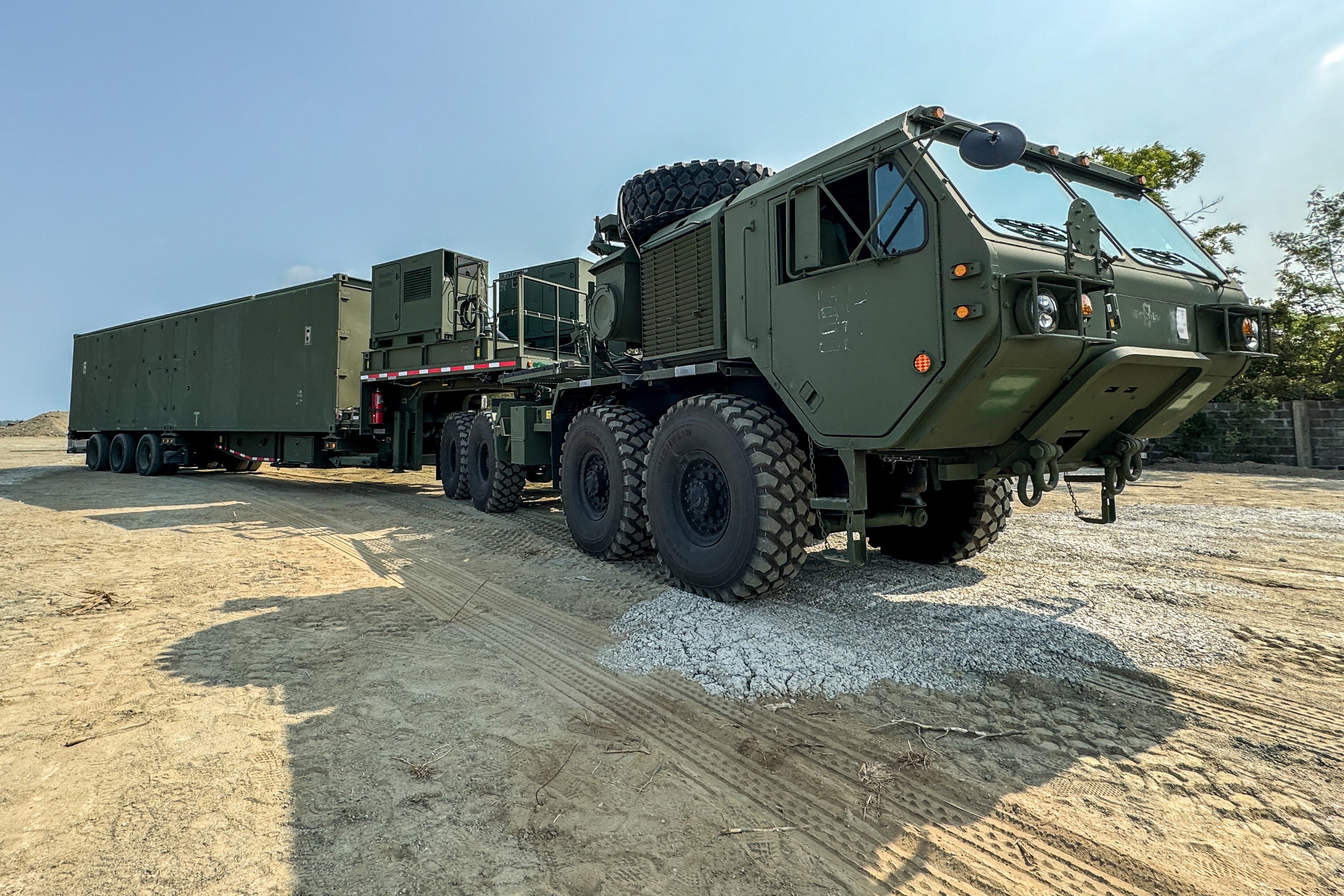China says Philippines face ‘self-inflicted destruction’ by hosting US missiles
Defence Ministry also denounces Manila’s plan to encourage fishermen to operate in disputed South China Sea waters

China’s Defence Ministry has warned the Philippines against “self-inflicted destruction” by hosting US missile systems and denounced Manila’s plan to encourage fishermen to operate in disputed South China Sea waters.
Meanwhile, the Chinese embassy in Manila dismissed drug-smuggling allegations by Philippine military officials as “baseless slander”.
The United States has reportedly decided to deploy additional strategic Typhon missile systems in the Philippines after transporting the mid-range missile launcher to Luzon last year.
The US Navy-Marine Expeditionary Ship Interdiction System (NMESIS) anti-ship missiles, used in last month’s Balikatan joint exercise, will also remain as a “deterrent against coercion”, the Philippine military said.
Manila’s move to introduce these strategic weapons is “binding itself to the US war machine”, which would undermine regional security and stability and sabotage the common interests of regional nations, Chinese Defence Ministry spokesman Zhang Xiaogang said in Beijing on Thursday.
“Inviting wolves into the house will backfire, leading to self-destruction. They will destroy their own homes,” Zhang said.
The Typhon missile system, also known as the Mid-Range Capability (MRC) launcher, can launch Tomahawk land-attack cruise missiles and SM-6 air defence missiles with a range up to 2,000km (1,243 miles).
That could cover nearly the whole of the South China Sea, as well as the island of Taiwan and even part of the Chinese mainland from its Northern Luzon positions.
NMESIS, a mobile, ground-based anti-ship missile launcher, was deployed in April on Batanes, the northernmost group of islands in the Philippines, only 190km from Taiwan.
Zhang also condemned Manila’s recent “New Hero-Fisherfolk” programme that encourages Filipino fishermen to operate in the disputed waters of the South China Sea, contending the programme was intended to “use fishing activities as a pretext to infringe upon China’s sovereignty and make provocations”.
“The Chinese side will strengthen administrative control of relevant waters in accordance with laws and regulations, and firmly safeguard its territorial sovereignty and maritime rights and interests,” Zhang said.
Beijing claims almost the entire South China Sea and has built military bases on artificial islands in the strategic waters, where about a third of world trade passes. The Philippines, along with Vietnam, Malaysia, Brunei and Taiwan, have overlapping claims.
The tension between China and the Philippines, a treaty ally of the US, has risen significantly in the past couple of years.
Beyond fishery clashes, the two coastguards and naval forces have had several stand-offs over multiple reefs in the area.
In a separate statement, the Chinese embassy denounced the claim by Philippine Navy spokesperson Roy Trinidad that the Chinese Communist Party was linked to maritime drug smuggling to “destroy the future generation of Filipinos”.
“China has the toughest resolve and policy against drugs and we have one of the best counternarcotics track records in the world,” the embassy said. “We firmly oppose the baseless and malicious accusations made by certain individuals of the Philippine military with intention to smear China.”
Responding to Philippine Defence Secretary Gilberto Teodoro Jnr’s recent comment that China needed to overcome a “deficit of trust and credibility”, the embassy said that some individuals in the Philippine military were “serving as pawns of the US Indo-Pacific strategy”, manipulating maritime issues and provoking and intensifying conflicts.
“Such words and deeds not only do not help solve the problem but instead become the root cause of the lack of mutual trust and an obstacle to solving the problem,” the embassy said.